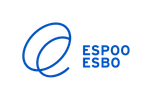Digital experiment in Espoo developed an employment-promoting language proficiency test
A digital experiment in the city of Espoo investigated how an online test on Finnish language proficiency could affect employment. The browser-based test, which was developed and tested in the experiment, measured writing and speaking skills as well as understanding of audio and text materials.

The aim was to develop a test that could be taken independently and shared digitally, for example as part of a CV. In addition to assessing the level of proficiency, the test provided tailored recommendations on city services and training.
Information on Finnish proficiency affects employment
Espoo currently has more than 12,000 foreign-language jobseekers, most of whom do not know their Finnish language proficiency level. The number of foreign-language speakers is constantly increasing, and the long-term goal is that for almost everyone would know their language proficiency level. A cost-effective online test would be a good option and a tool for quickly assessing language proficiency without costly and time-consuming National Certificate of Language Proficiency (YKI) tests.
The experiment started at the beginning of 2024, the test was built in the spring, and the testing began in early summer. Jobseekers and Finnish learners got the chance to take the test at 20 different events.
Test result must be available quickly
In the opinion of the testers, one of the positive aspects of the test was definitely that it was free of charge. Many felt that the test was a useful tool for assessing their language proficiency and helped or could help them prepare for the National Certificate of Language Proficiency test. Some were unhappy because the test result was not official and felt that this caused a lack of motivation.
‘One of the most important lessons learned in the experiment was that it must be possible to utilise the test result as soon as possible. This will help employment services manage the job search more effectively and improve employment opportunities,’ says Valia Wistuba, Development Manager of the Digital Agenda experiments in the City of Espoo.
The people who took the test found it relatively easy to use even if the test could have progressed more slowly. Respondents hoped for more clarity and examples in the initial instructions, but the privacy statement opening in a separate window got positive feedback. Users hoped to receive more detailed and encouraging feedback, especially after completing the tasks.
‘We learned that the test should be encouraging at all levels. In this way, it could support language learning in addition to evaluation,’ Wistuba adds.
Testing requires motivation and a suitable environment
Some challenges arose during the experiment. Social situations and physical spaces may have hindered completing the test. This affected the test results and their utilisation.
‘At the test events, we learned that independent testing requires personal motivation, concentration and digital skills. In particular, people wanted to respond to the speaking tasks in private. It was challenging to reserve a peaceful space for the customer here at the employment services office, as the spaces were often reserved or had access to staff facilities,’ says Project Manager Olga Silfver from the City of Espoo Employment and Economic Development Office.
Experiment highlighted many possible uses – future still uncertain
The experiment highlighted many possible applications for the test in employment, recruitment, teaching and integration services. It has also attracted interest in different cities both nationally and internationally.
‘At the moment, the personal coaches from the employment services assess the language skills of jobseekers themselves, as the duration and price of official language tests limit their use. A quick online test would clarify language proficiency and facilitate the work of personal coaches. There is national demand for this,’ says Silfver.
The practical implementation of the browser-based test was carried out by Rouhia Oy, whose Reactored learning environment enables a versatile learning experience.
‘The experiment process of the City of Espoo was well structured, and it provided us with good resources for our own processes. We now also understand the complexity of the city's processes. The working group had a good attitude to learning, and we are very pleased that we were a part of this experiment,’ says Kari Savolainen, CEO of Rouhia Oy.
Espoo is currently assessing the procurement of a digital language proficiency test. The aim is to find ways to launch the test more extensively and to support the employment of jobseekers.
The Digital Agenda’s aim is to promote the digitalisation of municipal services, utilisation of new technology, introduction of electronic services and adoption of new operating methods. espoo.fi/digiagenda
Contacts
Contact person for the experiment, Project Manager Olga Silfver, olga.silfver@espoo.fi
Digiagenda coordinator, Development Manager Valia Wistuba, valia.wistuba@espoo.fi
Rouhia Oy, CEO Kari Savolainen, kari.savolainen@reactored.com
Links
Alternative languages
Subscribe to releases from Espoon kaupunki - Esbo stad
Subscribe to all the latest releases from Espoon kaupunki - Esbo stad by registering your e-mail address below. You can unsubscribe at any time.
Latest releases from Espoon kaupunki - Esbo stad
Eetvartti 4/2024 -toimintaympäristökatsaus on julkaistu18.12.2024 15:50:28 EET | Tiedote
Ajankohtaista: Opiskelua tukevaa ja opettamista helpottavaa kehittämistä Espoossa Konsulttiyritys WSP:n tutkimus kertoo: Espoon elinvoima Suomen kuntien kärkipäätä Espoon kaupungin tuottamat väestöennusteet 2024 on julkaistu Kaupunginjohtaja Jukka Mäkelän vuodet ovat olleet voimakasta kasvun aikaa
Kaupunginhallitus: Asemakaavamuutoksia Otaniemessä ja Niittykummussa16.12.2024 20:53:40 EET | Tiedote
Asemakaavamuutosten lisäksi kaupunginhallitus mm. päätti alue- ja kuntavaalien 2025 äänestyspaikat sekä merkitsi tiedoksi nuorisovaltuuston aloitteet ja kannanotot 2024.
Tila- ja asuntojaosto vuokrasi Länsi-Espoon lukiolle tilat Ruukintieltä16.12.2024 10:41:38 EET | Tiedote
Kaupunginhallituksen tila- ja asuntojaosto päätti vuokrata Länsi-Espoon lukiolle toimitilat ja pysäköintioikeudet 20 vuodeksi osoitteesta Ruukintie 10, Kivenlahti.
Espoo tarkentanut näkymää rakennuskannan ilmastopäästöjen kehityksestä – rakennusmateriaalien päästöt korostuvat tulevaisuudessa13.12.2024 15:02:58 EET | Tiedote
Espoon uusi skenaariotyö syventää kaupungin ymmärrystä rakentamisen päästöjen kehityksestä aina vuoteen 2060 asti. Tämän hetken tiedon mukaan rakennuskannan ilmastopäästöissä energialla on merkittävin osuus 2030 asti, jonka jälkeen suurin osa päästöistä syntyy materiaalien valmistuksesta. Skenaariotyön tulokset auttavat tarkentamaan kuvaa rakentamisen ilmastotyön kehitystarpeista.
Info från nämnden Svenska rum 12.12.202412.12.2024 19:03:00 EET | Pressmeddelande
På torsdagens möte beviljade nämnden årligt understöd för grundläggande konstundervisning för år 2025, beslutade om förändringar i timfördelningen för den grundläggande utbildningen på svenska i Esbo och gjorde beslut om höjning av kommuntillägg för stöd av privat vård.
In our pressroom you can read all our latest releases, find our press contacts, images, documents and other relevant information about us.
Visit our pressroom